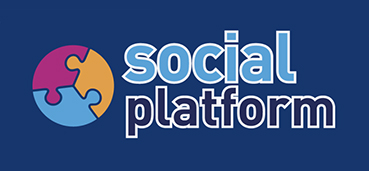After several years of intense negotiations, the EU institutions have agreed on the reform of the Union’s fiscal rules, which could signal a return to the austerity policies of the past decade. For Social Platform, the main platform for European social organizations, “instead of seizing this opportunity to create fiscal rules that can respond to Europe’s current and future challenges, the final outcome has fallen far short of expectations.” As part of the Fiscal Matters coalition and alongside other civil society actors, trade unions, and political figures, Social Platform has expressed concerns that the new rules risk hindering, rather than promoting, a just transition and a sustainable and equitable Europe.
Addressing Europe’s major challenges, such as accelerating a socially just transition, reducing poverty and inequalities, and adapting to the future of work, “requires more, not less, public investment,” warns Social Platform. “Unfortunately, the new fiscal rules force Member States to reach arbitrary debt (60% debt-to-GDP) and deficit (3% deficit-to-GDP) ratios, leading to a very heterogeneous and extremely demanding fiscal adjustment for Member States.”
Social Platform positively values some changes related to reforms and investments in priorities such as the green and digital transitions, or social and economic resilience.
Nevertheless, in a context where Member States may have to implement significant expenditure cuts, “there is a risk that the EU’s focus on other priorities such as competitiveness, enlargement, and defense will continue to shrink the political and fiscal space for urgently needed social and just transition investments.”
The next important date is September 20, 2024, when Member States will need to submit medium-term fiscal-structural plans. Generally, the rules require Member States to consult civil society, social partners, regional authorities, and other relevant stakeholders before submitting their plan. Additionally, to qualify for a three-year extension of the adjustment period for national debt and deficit-to-GDP ratios, Member States need to commit to a set of reforms and investments aligned with EU priorities.
However, due to the short timeframe for submitting the first plan, stakeholder consultations are not mandatory. Additionally, relevant reforms and investments included in national recovery and resilience plans (NRRPs) will be taken into account for the extension.
What is needed for the next mandate?
Social Platform concludes that with the EU fiscal rules overly restricting fiscal space in many Member States, “other solutions are urgently needed in the next mandate to fill investment gaps and ensure Europe can become a more social, inclusive, and sustainable continent.”
As part of the Fiscal Matters coalition, Social Platform has called on Member States to:
• establish a long-term EU just transformation fund (post-2026) to drive the socially just transformation of our economies and societies;
• adopt new progressive taxation to cover green and social investment gaps;
• ensure social and green conditions for targeted public subsidies to companies;
• adopt a progressive social agenda.







